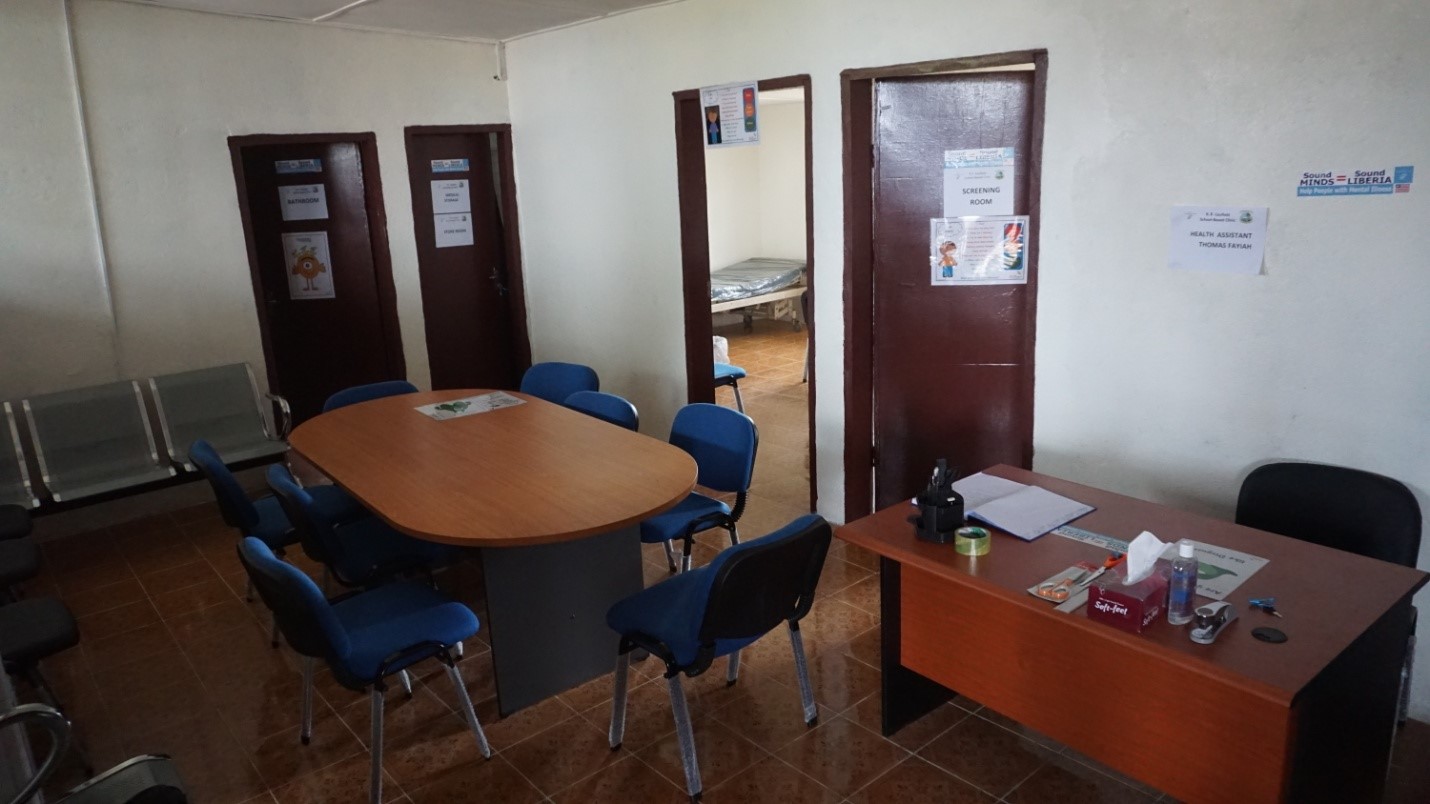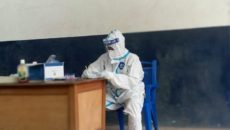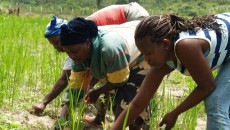UNIFICATION CITY, Margibi – The troubled Liberian health sector has got a boost from the Carter Center with the establishment of a school-based clinic at the R.S. Caufield primary, junior and secondary school located in Margibi.
This is the second school-based clinic by the Carter Center Mental Health Program, with sponsorship from the UBS Optimus Foundation. The program means to establish a total of three clinics in Montserrado and Margibi.
In March 2017, the program established the first out of three school-based clinics at the Liberia Marketing Association daycare and kindergarten school at the Waterside Market.
The R.S. Caufield school-based clinic has a conference room, two screening rooms, and a medical storage room to serve its 1,200 students.
Leona Carlor Mason, the project coordinator for UBS Optimus Foundation project, said it is meant to complement the World Bank’s Psychosocial Health Resilience program in the country.
Prior to this project, the Carter Center had already established four school-based clinics at the B. W. Payne Elementary and Tubman High Schools in Montserrado and at Lango Lippi and Kakata Rural Teachers Training Institution Demonstration Schools in Margibi.
Leona Mamie Togbah, the clinician in charge of the R.S. Caufield school told The Bush Chicken that the establishment of the school-based clinic is a boost to the community because it will improve the mental and physical health of the students.
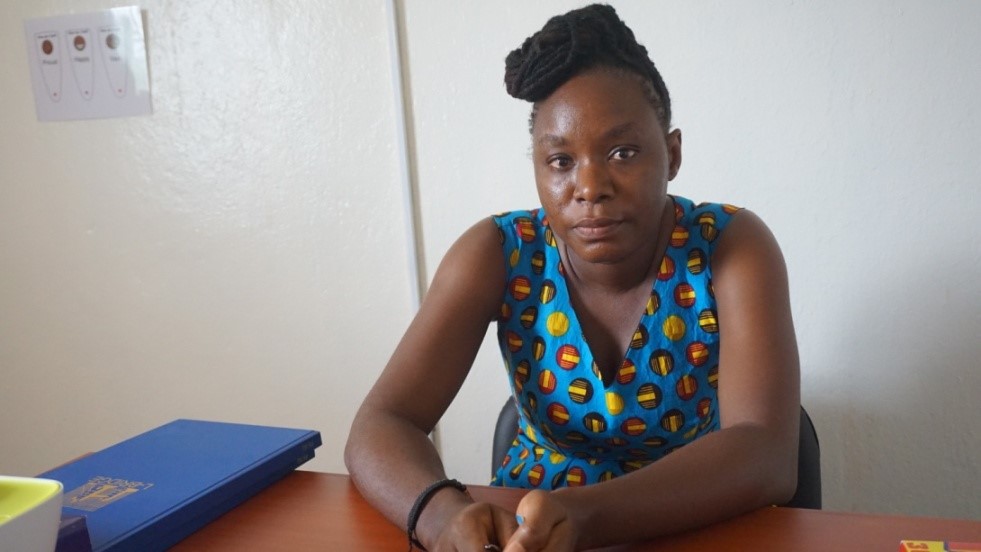
Leona M. Togbah, Clinician at R.S Caufield School’s clinic. Photo: Zeze Ballah
Togbah said cases to also be handled at the school-based clinic includes malaria, headaches, running stomach, and the emotional and behavioral problems of the students.
Health practitioners are expected to engage in group discussions with the students in the areas of anger and stress management.
“Such will basically focus on how the students will regulate their emotions while in school,†Togbah said, adding that it should help children who tend to fight and abuse their classmates and teachers during school hours.
“Several kids in the country are experiencing emotional problems that people do not tend to understand the underlying factors but label them as being rude, disobedient, and dull,†she said.
For his part, Augustine S. Gboyo, the principal of the R. S. Caufield School, said the school’s administration is overwhelmed by the clinic.
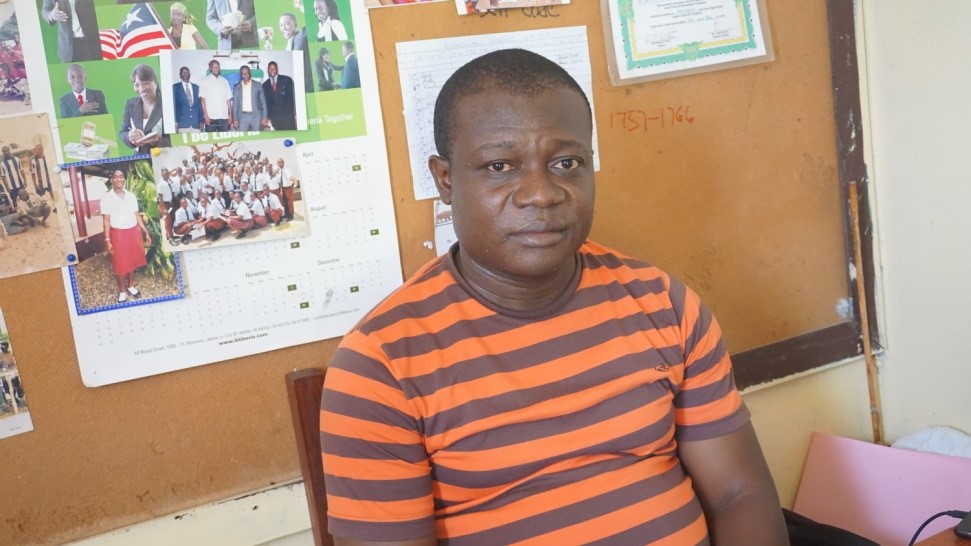
Augustine S Gboyo, Principal of the R.S. Caufield School. Photo: Zeze Ballah
“The clinic is one of many facilities the R. S. Caufield School administration has long been yearning for in order to have a conductive learning environment where students who fall ill while in school would not be taken to a distant clinic for treatment,†he said.
Gboyo said the community in which the school is situated does not have a clinic, noting that “the nearest clinic is about 15 miles away.â€
He said on several occasions that students and teachers have fallen ill during school hours, they had to be rushed elsewhere for treatment but now, “the clinic has brought relief to the entire student populace.â€
In 2014, Unification City was one of several areas hardly hit by the Ebola outbreak.
“There are lots of traumatic, psychosocial, and emotional problems exhibited by some of the students as a result of the Ebola crisis,†Gboyo said.
With the establishment of the clinic, he said health practitioners and teachers would now be able to better understand and deal with some of the students’ behaviors.
He assured the Carter Center that the school administration would take ownership of the clinic in terms maintenance and its usage.
Feature photo by Zeze Ballah
